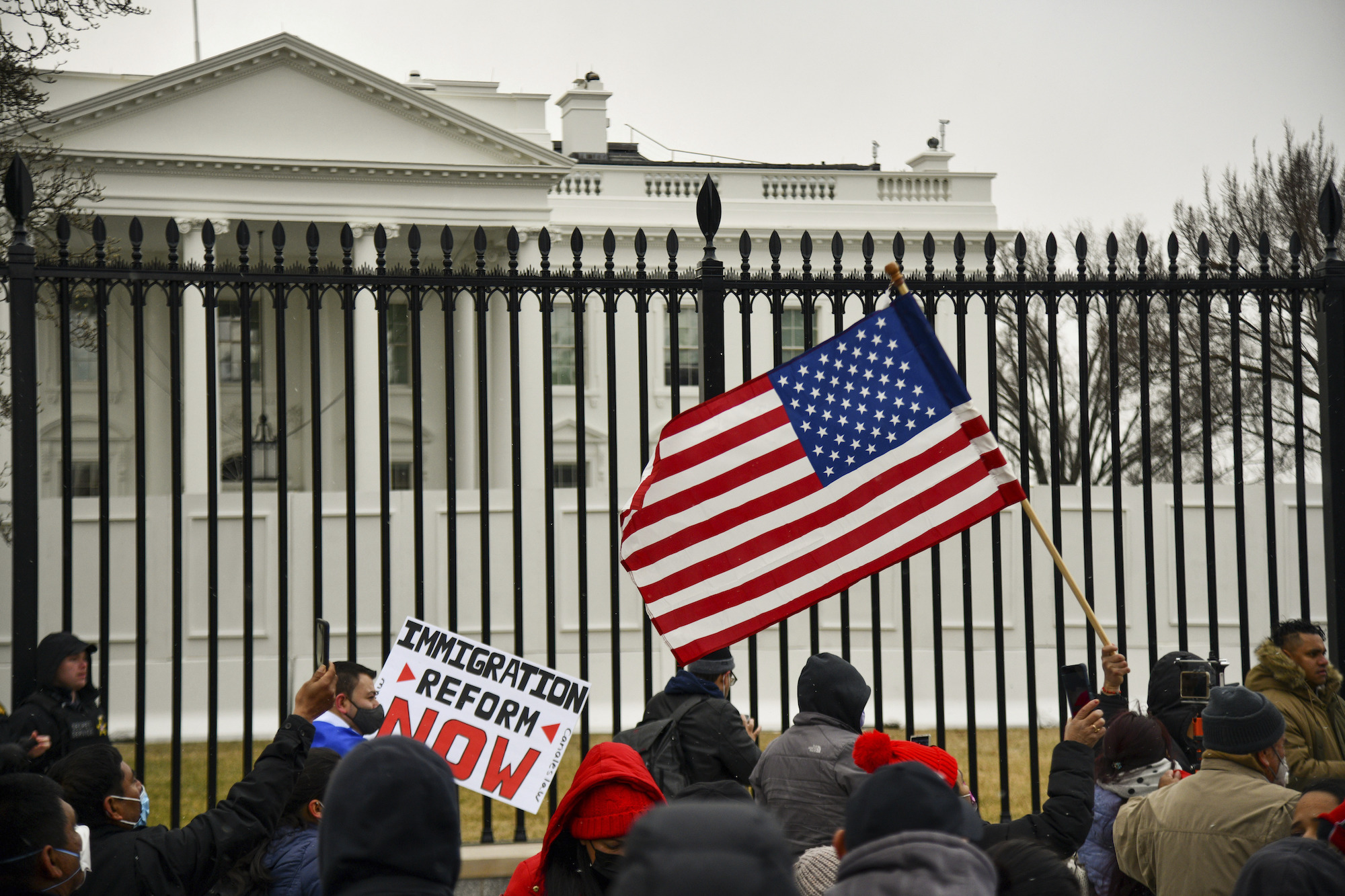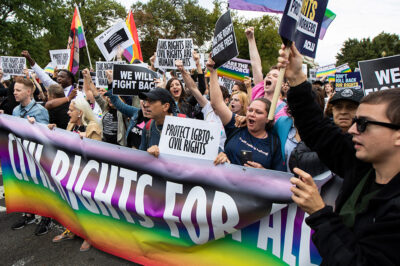
United States v. Helaman Hansen
What's at Stake
This case is about whether the First Amendment permits criminal punishment of speech that merely encourages a noncitizen to remain in the United States, without any requirement of intent to further illegal conduct, and when remaining in the United States unlawfully is itself not a crime.
Summary
A federal law, 8 U.S.C. § 1324(a)(1)(A)(iv) (the “encouragement provision”), makes it a felony to “encourage[] or induce[] an alien to come to, enter, or reside in the United States, knowing or in reckless disregard that such coming to, entry, or residence is or will be in violation of law.” Violating the encouragement provision carries a maximum penalty of five years’ imprisonment, while a separate penalty enhancement provision raises this maximum to ten years when the violation is committed “for the purpose of commercial advantage or private financial gain.”
The encouragement provision violates the First Amendment because it criminalizes a wide swathe of constitutionally protected speech. Its plain terms make it a crime for a grandmother to say she doesn’t want her undocumented grandchild to leave her, a doctor to advise her patient with an expiring student visa that the patient needs medical treatment provided only in the United States, a priest to inform a noncitizen parishioner whose employment authorization is ending about church child-care and pantry resources that would support her remaining, and a lawyer to counsel an out-of-status noncitizen that she has the ability to become a lawful permanent resident if she does not leave the country. All such speech is a crime, even though the conduct it “encourages” is at most a civil violation of law. And the statute makes such speech a crime without any showing that the speaker intended to encourage the listener to violate the law, or that a violation was likely or imminent.
This case has implications for freedom of speech outside of the context of immigration. Other protected political expression—from arguing for peaceful civil disobedience, to academic work advocating violations of environmental and zoning regulations, to broad encouragements to “resist” Court rulings—could readily satisfy the government’s standard of “encouraging” lawbreaking, given the wide range of behavior that is civilly regulated. But the First Amendment protects such abstract advocacy of unlawful conduct.
United States v. Helaman Hansen is on appeal from the U.S. Court of Appeals for the Ninth Circuit. The U.S. Supreme Court has calendared the case for oral argument on March 27, 2023. The ACLU is counsel in the case with the Office of the Federal Defender for the Eastern District of California.
Legal Documents
-
06/23/2023
Opinion -
03/17/2023
Reply Brief of Petitioner United States -
02/17/2023
Brief of Respondent Helaman Hansen -
01/18/2023
Joint Appendix -
01/18/2023
Brief of Petitioner United States -
11/14/2022
Reply of Petitioner United States to Brief in Opposition -
10/28/2022
Brief of Respondent Helaman Hansen in Opposition -
08/25/2022
Petition of United States for Writ of Certiorari
Date Filed: 06/23/2023
Court: U.S. Supreme Court
Date Filed: 03/17/2023
Court: U.S. Supreme Court
Date Filed: 02/17/2023
Court: U.S. Supreme Court
Date Filed: 01/18/2023
Court: U.S. Supreme Court
Date Filed: 01/18/2023
Court: U.S. Supreme Court
Date Filed: 11/14/2022
Court: U.S. Supreme Court
Date Filed: 10/28/2022
Court: U.S. Supreme Court
Date Filed: 08/25/2022
Court: U.S. Supreme Court
Press Releases
ACLU, Federal Defender Respond To Supreme Court Ruling That Limits Federal Law Seeking to Criminalize Speech About Immigration
ACLU, Federal Defender’s Office Argue to Supreme Court that First Amendment Protects Speech that Merely Encourages Undocumented Persons to Remain in U.S.


